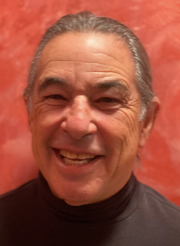In the US, Black and other ethnic minority groups are hit the hardest by Covid-19, creating a renewed focus on racism in healthcare. There are so many false beliefs that many doctors and other healthcare providers still work from about Black people, such as their skin being thicker, their blood coagulating differently, and that they feel less pain. When doctors are blind to their racist beliefs and attitudes it can lead to less effective treatments, more pain, humiliation, and even death. It’s time that doctors, medical students, and other health care professionals take anti-racist study seriously and get support to see bias in themselves and in others.
On 1/18/21 we had a conversation on About Health (94.1FM KPFA.org) to discuss racism in medical care. We heard about personal experiences of racism and some of the history that has added to the mistrust of doctors based on racist practices. You can hear that show here: https://www.nurserona.com/racism-in-medical-care/ It seemed important to me to do a follow up show to continue the conversation.
What are ways to uproot racism in medicine?
Listen now to About Health on KPFA.org—94.1FM (3/22/21)
 Dr. Jeff Ritterman is a retired cardiologist from Kaiser Richmond where he worked for 29 years. He was also a Professor and Clinical Coordinator for the Physician Assistant Program at Touro University and worked for three years doing Adult Primary Care at Lifelong Medical in San Pablo. He is on the Board of Directors of San Francisco Physicians for Social Responsibility and served on the Richmond City Council when they introduced the first municipal Soda Tax. In the 1980s he helped start the Salvador Medical Relief Fund and the Committee for Health Rights in Central America. He personally delivered medical supplies to Salvador Refugees in Honduras and Costa Rica. In the 1990s he started the Southern Africa Medical Aid Fund and delivered medical supplies to the African National Congress’s Clinic in Lusaka, Zambia. He has helped start two Racial Equity Book Clubs, one with Kaiser Oakland and the other with San Francisco Physicians for Social Responsibility. He is the author of two recent papers on combating Medical Racism.You can read one of them here: http://www.thepermanentejournal.org/issues/2021/spring/7609-the-ally-book-club-a-tool-for-challenging-racism.html
Dr. Jeff Ritterman is a retired cardiologist from Kaiser Richmond where he worked for 29 years. He was also a Professor and Clinical Coordinator for the Physician Assistant Program at Touro University and worked for three years doing Adult Primary Care at Lifelong Medical in San Pablo. He is on the Board of Directors of San Francisco Physicians for Social Responsibility and served on the Richmond City Council when they introduced the first municipal Soda Tax. In the 1980s he helped start the Salvador Medical Relief Fund and the Committee for Health Rights in Central America. He personally delivered medical supplies to Salvador Refugees in Honduras and Costa Rica. In the 1990s he started the Southern Africa Medical Aid Fund and delivered medical supplies to the African National Congress’s Clinic in Lusaka, Zambia. He has helped start two Racial Equity Book Clubs, one with Kaiser Oakland and the other with San Francisco Physicians for Social Responsibility. He is the author of two recent papers on combating Medical Racism.You can read one of them here: http://www.thepermanentejournal.org/issues/2021/spring/7609-the-ally-book-club-a-tool-for-challenging-racism.html

Dr. Nadia Gaber is a postdoctoral fellow in the Program on Reproductive Health and the Environment, studying the influence of the chemical industry on the science and regulation of toxic chemicals. She received her PhD in medical anthropology and is obtaining her MD at UCSF with support from the NIH Medical Scientist Training Program. Her research in Detroit and Flint looked at the politics of urban health and safety in the U.S. through the lens of water. She is continuing to develop that research in a book project called Life After Water that blends ethnography, grassroots epidemiology and critical race theory. She is a member of the new UCSF REPAIR Project, a three-year initiative to combat anti-Black racism in the health sciences and has organized off-campus with groups like Critical Resistance and the Arab Resource and Organizing Center.
Some References From Dr. Ritterman
1. Washington HA. Medical apartheid. New York, NY: Anchor Books; 2008.
2. Owens DC. Medical bondage. Athens, GA: University of Georgia Press; 2017.
3. Diangelo R. White fragility. Boston, MA: Beacon Press; 2018.
4. Kendi IX. How to be an antiracist. New York, NY: Random House; 2019.
5. Metzl JM. Dying of whiteness. New York, NY: Basic Books; 2019.
6. Hoffman KM, Trawalter S, Axt JR, Oliver MN. Racial bias in pain assessment and treatment recommendations, and false beliefs about biological differences between blacks and whites. Proc Natl Acad Sci USA 2016 April;113:4296-301. DOI: https://doi.org/10.1073/pnas 15160471131073 Accessed August 20, 2020.
 Dr. Jeff Ritterman is a retired cardiologist from Kaiser Richmond where he worked for 29 years. He was also a Professor and Clinical Coordinator for the Physician Assistant Program at Touro University and worked for three years doing Adult Primary Care at Lifelong Medical in San Pablo. He is on the Board of Directors of San Francisco Physicians for Social Responsibility and served on the Richmond City Council when they introduced the first municipal Soda Tax. In the 1980s he helped start the Salvador Medical Relief Fund and the Committee for Health Rights in Central America. He personally delivered medical supplies to Salvador Refugees in Honduras and Costa Rica. In the 1990s he started the Southern Africa Medical Aid Fund and delivered medical supplies to the African National Congress’s Clinic in Lusaka, Zambia. He has helped start two Racial Equity Book Clubs, one with Kaiser Oakland and the other with San Francisco Physicians for Social Responsibility. He is the author of two recent papers on combating Medical Racism.You can read one of them here: http://www.thepermanentejournal.org/issues/2021/spring/7609-the-ally-book-club-a-tool-for-challenging-racism.html
Dr. Jeff Ritterman is a retired cardiologist from Kaiser Richmond where he worked for 29 years. He was also a Professor and Clinical Coordinator for the Physician Assistant Program at Touro University and worked for three years doing Adult Primary Care at Lifelong Medical in San Pablo. He is on the Board of Directors of San Francisco Physicians for Social Responsibility and served on the Richmond City Council when they introduced the first municipal Soda Tax. In the 1980s he helped start the Salvador Medical Relief Fund and the Committee for Health Rights in Central America. He personally delivered medical supplies to Salvador Refugees in Honduras and Costa Rica. In the 1990s he started the Southern Africa Medical Aid Fund and delivered medical supplies to the African National Congress’s Clinic in Lusaka, Zambia. He has helped start two Racial Equity Book Clubs, one with Kaiser Oakland and the other with San Francisco Physicians for Social Responsibility. He is the author of two recent papers on combating Medical Racism.You can read one of them here: http://www.thepermanentejournal.org/issues/2021/spring/7609-the-ally-book-club-a-tool-for-challenging-racism.html
